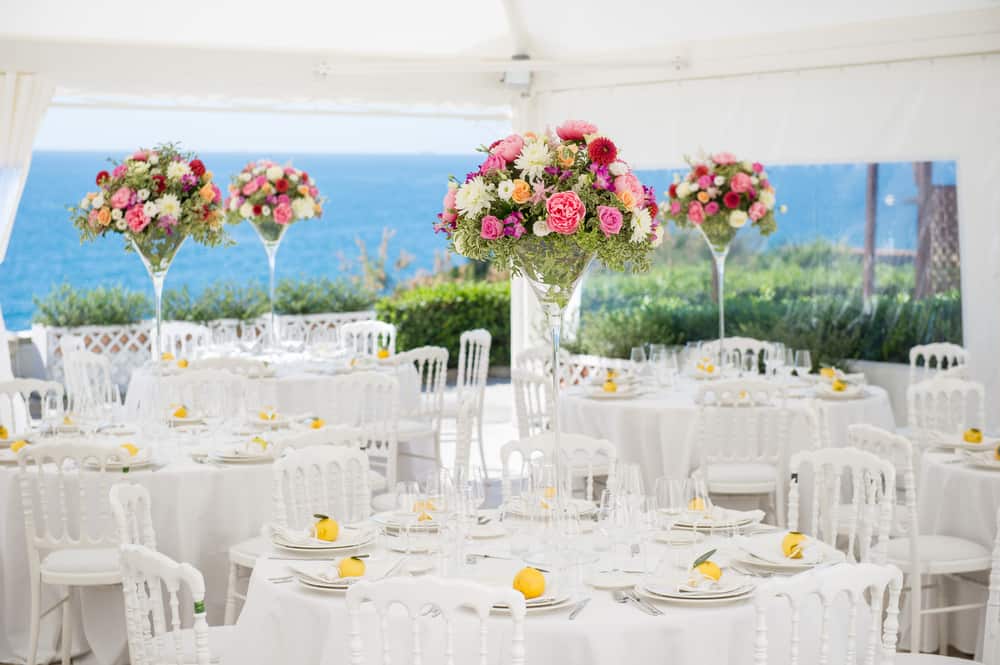
How to Start a Career in Events Planning
With all the media frenzy around different major events such as the premiere of a new movie, VIP parties, royal weddings, award ceremonies, different summits, Hollywood celebrity birthday parties in super luxurious locations – a career in events planning sounds enticing. But it’s not all glitz and glamour folks! It doesn’t only involve traveling to breath-taking locations and meeting famous people. It takes a lot of hard work, specific skills and passion.
If you’re passionate about working with people, can multi-task and take control over any chaotic situation, if you’re a problem solver, you have an eye for details, and you’re incredibly creative, then a career in events planning is a great choice for you.
You’ll need to work on your social skills including different listening techniques, how to pinpoint what the client really wants, why they want it and what’s the outcome they expect from the event. By clearly understanding your client’s requirements and discussing the various possibilities he might have overlooked, you’ll set the grounds for the event of his life.
Job Basics
- Entry salary: ranging from £15,000pa to around £18,000pa;
- Experienced salary: between £16,000pa and £35,000pa;
- Manager salary: salary begins from £30,000pa;
- Director & Senior Manager: salary starting at £50,000pa.
However, salary levels depend on each company’s policies. A benefits package can be offered including bonuses and commissions based on increased performance. The above figures are only a general guideline to give you a picture of the remuneration context for your career in Event Planning.
The average working hours are normal up until the days close to the event. You’ll need to put in extra hours and maybe even work on weekends to make sure everything is set.
What’s Involved in this Job?
Event planners are responsible for setting the grounds and coordinating the entire process of planning an event.
Most of the work they do is in the office, however, they must visit various suppliers, partners, clients, sponsors, and locations to guarantee the success of the event they’re putting together. Depending on the location of the event and whether the subcontractors are local or not, event planners may spend a significant amount of time away from home and sometimes even miss out on holidays.
Now, we’ll highlight the main responsibilities of an event planner:
- Event scheduling and production within a specific timeframe;
- Market research to identify the best locations for the venue, subcontractors, and suppliers;
- Contribute with creative ideas to add value to clients’ requirements;
- Manage décor, catering, entertainment, venue, guest list, any special guests, promotional products and equipment;
- Guarantee compliance with safety regulations, legal and health protocols, and insurance requirements;
- Collaborate with the marketing and PR staff to ensure a fully integrated promotion and publicity campaign for the event;
- Coordinate a pre-event assessment to avoid any unnecessary problems.
Skills
The career of an event planner can be an incredible roller coaster with great growth opportunities. To secure a sky-rocketing path for your career, you should continuously develop a strong set of soft skills such as organizational, networking, resilience to stress, adaptability, creativity, and dedication.
To become a successful event planner, you must be an incredibly organized person. You’ll schedule everything from when you have your morning coffee, when you’ll meet the first client, structure a strict budget for the client, delivery timeframes and other deadlines. With an organized mindset, you’ll also improve your memory and remember small but significant details about a venue or clients’ preferences, so you can organize a great event.
Because the events industry is based on relationships, if you’re an ace at networking, the stage is yours. You’ll need to know the best events suppliers and professionals such as caterers, lighting and décor suppliers, contractors, video producers, photographers, and DJs. You’ll be calling these professionals to help you put together your event. You can also use their future referrals back to you.
Things inevitably go wrong when it comes to events. It’s a world prone to incidents you can’t prevent. It’s why you need to have the attitude of going with the flow and calmly take control of the situation.
When it comes to planning an event, you’ll need to be very creative, so you can deliver, if not overdeliver, to satisfy your client. Discuss, ask questions and find out as many details about what your client wants. Stay up-to-date with the industry trends and offer your clients more than they asked for. By bringing your own spin to the standard requests, you’ll impress, stand out and guarantee referrals and your clients’ loyalty. For example, if you’re organizing a luxurious party, to make everything extremely exclusive you can add a password to the event. Guests will feel enticed and will love the closed-doors approach.
You should have a Can-Do attitude towards any request your client may have. Show dedication and have a proactive attitude and you’ll make your client relax and trust you.
Qualifications
Although it’s not obligatory, a degree in event management, leisure & tourism or marketing can come in handy to start your career as an event planner.
However, employers give more weight to your personal qualities and skills as well as to your experience level. A Level 2 certification in Event Planning can give you an edge when you’re just starting out in this industry. As an event planner, you’ll pick up different skills and improve while working alongside professionals and can take training courses organized by the employer or third parties in the UK such as the Association of Conferences and Events (ACE), the Society of Events Organisers (SEO) orthe Association of Event Organisers (AEO).
We’ve Got Jobs for You!
Are you tired of waiting for an opportunity to arise? Well then, it’s time for you to take control over your career as an event planner.
All you need to do is download our app which is available for Android and iOS users, and start your search for the job of your dreams! We have plenty of event planning jobs waiting for you.
“



